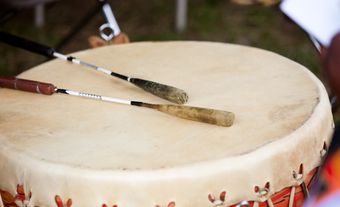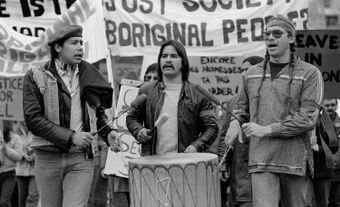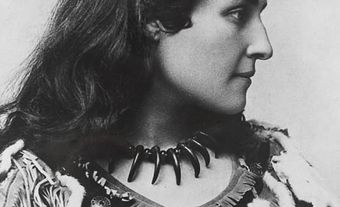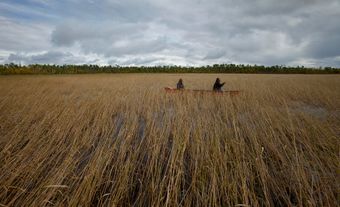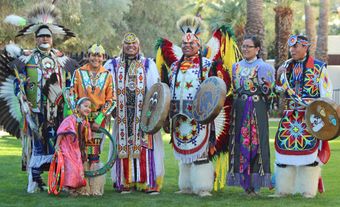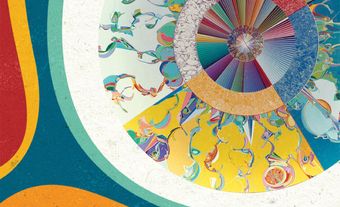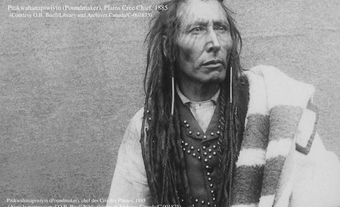Lee Maracle, OC, author and critic (born 2 July 1950 in Vancouver, BC; died 11 November 2021 in Surrey, BC). Lee Maracle was a prolific First Nations writer and expert on First Nations culture and history, and an influential Indigenous voice in Canadian postcolonial criticism.
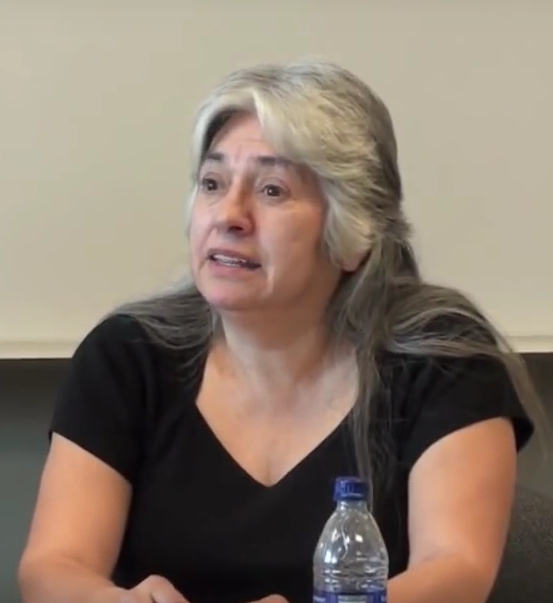
Early Life
Maracle was a member of the Stó:lō Nation, the daughter of a Métis mother and Salish father and a granddaughter of Chief Dan George. Maracle grew up in a poor neighbourhood called North Shore mud flats in North Vancouver, east of the Second Narrows Bridge. Feeling distanced from her Indigenous culture and an outsider in the broader Canadian culture, Maracle dropped out of school to become part of Vancouver’s hippie subculture and a member of the Red Power movement. She wandered to California and eventually Toronto, supporting herself in a range of occupations that included stand-up comedy and film production before returning to Vancouver to study at Simon Fraser University. Maracle was an activist in the Indigenous struggle against racism, sexism and economic oppression (see Indigenous Political Organization and Activism in Canada).
Literary Work
Among Canada’s most prolific Indigenous writers, Maracle published novels, poetry, short story collections and collaborative anthologies. Her writing is an innovative fusion of poetry, fiction, non-fiction, myth and memoir that revives traditional Indigenous stories to frame her modern tales.
Her primary focus was Indigenous women in the context of North American feminism, an approach she described as “decolonizing in the feminine.” With this feminine approach to viewing the world, Maracle addressed racism, post-colonialism, female sexuality, creative empowerment and racial solitudes. But her overarching theme was indigeneity (Indigenous identity). She explored the complex elements at work in what it means to be an Indigenous woman living in two cultures, and how indigeneity connects cultural identity, political awareness and advocacy within what we understand about the Indigenous experience, knowledge and sexual power.
As frequently noted in reviews of her work, Maracle’s writing also reflects her strong distaste for white cultural domination, pointing out that so much of what we know about history in general, in white and Indigenous cultures, represents the patriarchal point of view. Maracle believed that Indigenous men have been “infected” by white male cultural paradigms that have influenced the recovery of Indigenous culture.
Maracle’s first book, the autobiographical novel Bobbi Lee: Indian Rebel (1975, 1990), was one of the first Indigenous works published in Canada. It is the story of an Indigenous woman growing up within an oppressed minority during the 1960s and 1970s, and her struggle toward political consciousness. In the latter regard, it is the story of all oppressed peoples. It is nevertheless a hopeful text that suggests possibilities for envisioning a world that does not continually suppress Indigenous peoples.
Boundaries and the divisions between colonized and colonizer, and between white and Indigenous cultures, figure largely in much of Maracle’s writing. I Am Woman: A Native Perspective on Sociology and Feminism (1988, 1996) is also autobiographical. It presents Maracle’s struggle with womanhood, culture, tradition, spirituality and political authority through poetry, stories and essays. She wrote, as she says in the preface, “to empower Native women to take to heart their own personal struggle for Native feminist being.” The text explores the boundaries of the colonized female subject who is restrained by a history that is not of her ancestors’ creation, but contrived by the imposed culture, educational system, racism and sexism of the dominant white patriarchal culture.
Similarly, Ravensong: A Novel (1993), set on a West Coast reserve in the early 1950s, deals with cultural boundaries, beginning with first contact between colonizer and colonized, enacted through the feminine body — the Indigenous women who were sent aboard the first sailing ship to reach the coastal village. They returned to the village as “the first untouchable victims of disease.” The physical space of the village is redrawn by the presence of the white men who assert their dominance over the village, leaving the women alienated and disempowered within their own cultural space.
In 2015, Maracle published Memory Serves and Other Essays, lectures delivered over the past few decades that are “intrinsic to the Salish people in general and the Stó:lō in particular.”
Among Maracle’s other published works are Sojourner’s Truth (1990), Telling It: Women and Language Across Cultures (1990), Sundogs: A Novel (1992), Bent Box (2000), My Home as I Remember (ed., 2000), Daughters are Forever (2002), Will’s Garden (2002, 2008), First Wives Club: Coast Salish Style (2010), Talking to the Diaspora (2015), My Conversations with Canadians (2017, finalist for the 2018 Toronto Book Award), and Hope Matters (2019).
Did You Know?
Lee Maracle was shortlisted for the 2020 Neustadt International Prize for Literature, one of the world’s most prestigious literary awards. Previous Canadian nominees include Nobel Prize for Literature winner Alice Munro and Rohinton Mistry, who won the Neustadt in 2012.
Honours and Awards
Maracle held numerous academic posts, including the Stanley Knowles Visiting Professor in Canadian Studies at University of Waterloo; Distinguished Visiting Professor of Canadian Culture at Western Washington University; Writer-in-Residence at University of Guelph; Writer-in-Residence at University of Toronto’s First Nations House; Instructor for the Aboriginal Studies Program at University of Toronto; and Traditional Cultural Director for the Indigenous Theatre School in Toronto.
Her awards include the J.T. Stewart Voices of Change Award (2000) and an American Book Award from the Before Columbus Foundation (2000). In 2009, Maracle received an Honorary Doctor of Letters from St. Thomas University. In 2019, she was awarded an honourary doctorate from the University of Waterloo in recognition of her work “as an Indigenous voice for truth.” Maracle was also a co-founder of the En'owkin International School of Writing, a learning institute in Penticton, BC, with an Indigenous Fine Arts Program and an Okanagan language program.
Recognized as “one of the most influential Indigenous voices in Canada’s literary landscape” and an author “that has been instrumental in promoting social justice in Canada,” Maracle was made an Officer of the Order of Canada in 2018.

 Share on Facebook
Share on Facebook Share on X
Share on X Share by Email
Share by Email Share on Google Classroom
Share on Google Classroom
